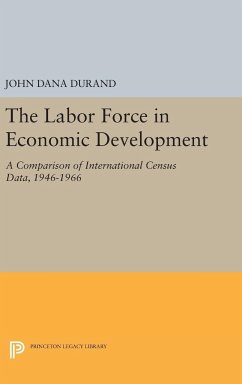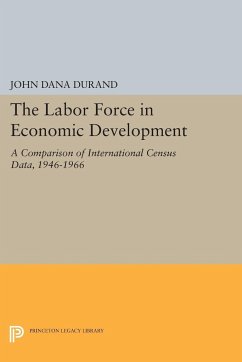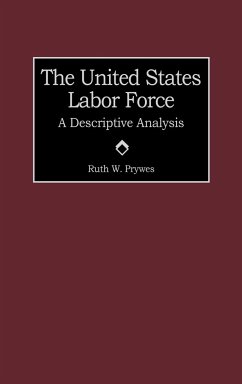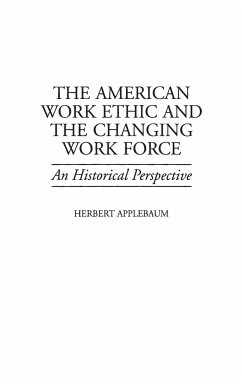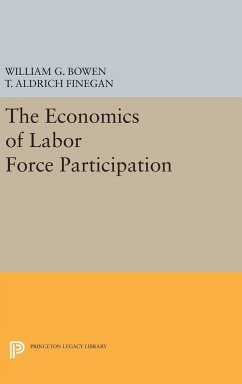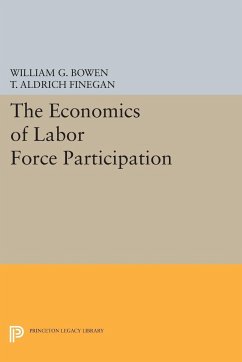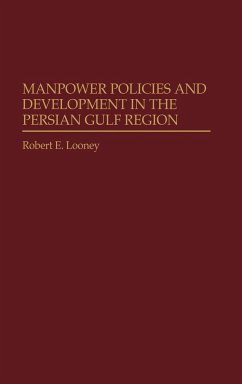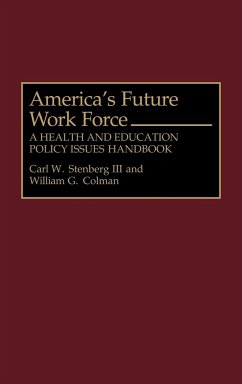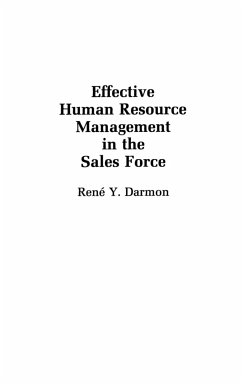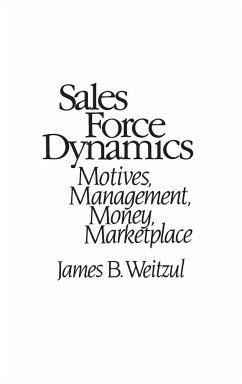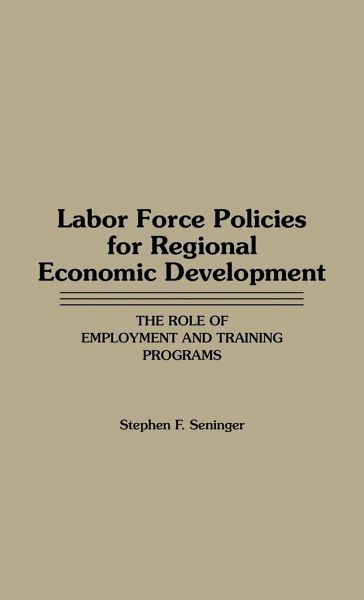
Labor Force Policies for Regional Economic Development
The Role of Employment and Training Programs
Versandkostenfrei!
Versandfertig in 1-2 Wochen
69,99 €
inkl. MwSt.

PAYBACK Punkte
35 °P sammeln!
Seninger here identifies and examines the analytical connections between regional growth and development processes and the characteristics of the regional labor force. According to the author, although the idea that a region's economic progress is partly determined by its labor resources is widely accepted, formal economic analyses and policy prescriptions have not always taken this link into consideration--and have therefore failed to generate effective policies for encouraging growth. In an attempt to provide a practical basis for such policies, Seninger draws upon the regional development l...
Seninger here identifies and examines the analytical connections between regional growth and development processes and the characteristics of the regional labor force. According to the author, although the idea that a region's economic progress is partly determined by its labor resources is widely accepted, formal economic analyses and policy prescriptions have not always taken this link into consideration--and have therefore failed to generate effective policies for encouraging growth. In an attempt to provide a practical basis for such policies, Seninger draws upon the regional development literature, presenting alternative models in terms of strategies and tactics for policy practice. Scholars and practitioners of regional development will find this a coherent, systematic view of the analytical and policy linkages between economic development, employment, and the work force--one which can serve as the foundation for successful policy design and program implementation. Seninger's emphasis throughout is on the qualitative, human resource characteristics of a region's work force and its active role in the growth and development process. The applied policy focus of the discussion places the role of labor resources in the context of labor market institutions, theories of regional change, and a region's economic development path. Arguing that the prevailing economic ideology of export-led growth and resource mobility is responsible for labor policies which are reactions to growth rather than initiators of growth, Seninger attempts to provide a workable foundation for policies which both utilize a region's labor resource advantages and extend the income/employment growth objective to other goals, including employment stability and enhanced job quality.





